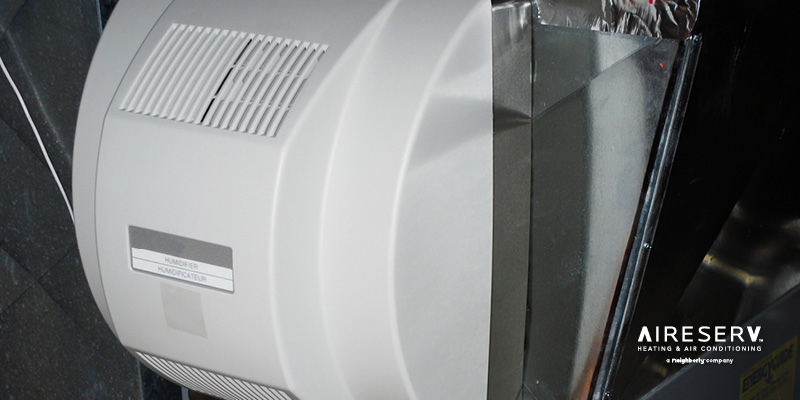How Do Furnace Humidifiers Work?

An essential component of your home, your furnace humidifier protects your family and the structure and contents of your home from the effects of overly-dry conditions. A surprise to many, such dry conditions in your home make you feel colder, making a humidifier an integral part of ensuring both comfort and energy savings. But how do furnace humidifiers work, when a furnace’s main function is Heating the air? The answer lies in the type of humidifier on your furnace, which can vary to model to model. Let’s take a closer look.
How Does a Humidifier Work on a Furnace?
Proper humidification protects your home and helps you feel warmer. With the right amount of humidity in the air, you can actually feel warm and comfortable at a lower thermostat temperature, saving energy and money. Using only a small amount of energy (much less than you would spend keeping your home comfortable in dry conditions), furnace humidifiers add moisture to the air the furnace distributes using the principles of evaporation. Mounting to the hot air supply of your furnace and connected to a water source and the ductwork for distribution, humidifiers work in conjunction with your furnace with the help of basic humidifier parts:
- Water Collector
This may be a reservoir or evaporator pad. - Water Control Valve
This can be a solenoid or float, which is used to dispense water to the humidifier as needed to reach the desired humidity level. - Blower
To produce the air movement necessary for evaporation. - Humidistat
For control of humidity settings, turning the humidifier ON/OFF.
Types of Furnace Humidifiers
No matter the type, the components of the humidifier work the same: Producing moisture and infusing it with the warm air your furnace produces for delivery via ductwork, and working with your HVAC control to monitor/maintain temperature/humidity levels. There are three types of furnace humidifiers:
- Reservoir
Reservoir/drum-style humidifiers, as their name suggests, rely on a reservoir of water and a rotating drum to create moisture. They are the least expensive, but also the least efficient, and the most prone to suffer mould issues because they remain full of water. This means they’ll require more frequent maintenance for proper operation, and to ensure they don’t make your family sick. - Flow-Through
In flow-through humidifier models, water tapped in to the humidifier from an existing water or pipe source flows through the unit, and is used to drip across a specially coated screen for blower-induced evaporation while the furnace is running. Excess water drains out. Though these use more water than reservoir-style models, they offer more reliable operation and less maintenance. - Steam
Steam humidifiers incorporate a self-generating steam heater, boiling water as-needed and injecting steam directly into heated air for distribution. Though more expensive than other humidifier styles, they offer the most efficient operation – and the least maintenance.
When to Use Your Humidifier
Look to your humidifier when the relative humidity (RH) levels in your home drop below the ideal levels of 30-50%. You will know it’s time to turn to your humidifier when temperatures drop and static electricity issues become apparent in your home. If left too dry, the inhabitants of your home could suffer dry skin, nose bleeds, and worsened asthma/allergy symptoms. Your furniture could likewise suffer, causing wooden cabinets, furniture, flooring and fixtures to dry out, crack and split.
How to Turn Your Furnace Humidifier On
Turn your HVAC to ‘heat’ mode, then locate your humidistat, which is typically located near your thermostat or mounted on the furnace housing. If the dial is set to ‘0’ or ‘OFF,’ you can engage your furnace humidifier by turning the dial to a higher setting. (When you hear a click, you’ve found the current level of humidity your system is sensing.) If your system has a bypass damper, set the damper level parallel to the duct to ‘open’ or ‘winter’ position. Look for water draining from the humidifier while the heat is running (or just after it shuts off) to verify operation.
Furnace humidifier leave you high and dry? The experts at Aire Serv® can get it back up and running in a flash. Contact our experienced service team today.
 Click to call
Click to call


